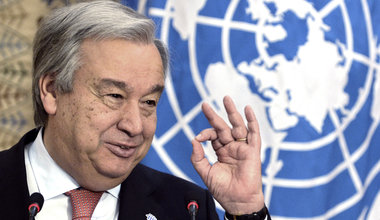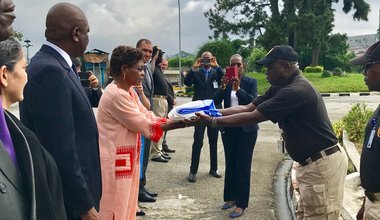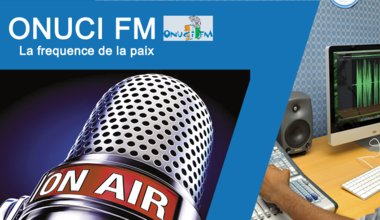Daily Brief on Côte d’Ivoire for Wednesday, 3 December 2008
Highlights
- SRSG meets RDR leader to discuss peace process
- Identification starts in west and centre west
SRSG's activities
The Special Representative of the UN Secretary-General for Côte d'Ivoire, Y.J. Choi, met yesterday with the President of the Rally for Republicans (RDR) party, Alassane Dramane Ouattara, to discuss the forthcoming meetings to discuss the Ivorian peace process. Mr. Ouattara and Mr. Choi discussed the next meeting of the Standing Consultative Framework and the UN Security Council session scheduled for January 2009. Mr. Choi was due to meet with the president of the Ivorian Workers Party (PIT), Francis Wodié, at UNOCI headquarters today.
Electoral process
The identification and voter registration operation started today in Daloa (centre-west), one day after it kicked off in the western town of Guiglo yesterday. It was, however, postponed in San Pedro (southwest), where it was due to start today, due to the non availability of identification equipment.
Security
Members of UNOCI's Formed Police Unit (FPU) were last night sent to Bonoufla, 20 km from Daloa (centre-west), following unconfirmed reports that rebels were planning to attack the town situated inside the former zone of confidence (ZOC).
With regard to ongoing FAFN investigations into the attack by dissident soldiers on 24 November 2008 in Seguela, 33 people have been released while 44 remain in detention at the military HQ Camp Highlander, pending further inquiries.
Arms embargo
UNOCI peacekeepers yesterday successfully carried out arms embargo inspections at the Armed Forces of the Forces Nouvelles' (FAFN) Zone-5 unit in Dania, near Séguéla (centre-west) and at its company located at Bonieredougou, near Bouaké, as well as at the Ivorian Defence and Security Forces (FDS-CI) mobile gendarmerie in Daoukro (east).
Humanitarian
The medical unit of the Bangladeshi battalion (BANBATT) based in Yamoussoukro yesterday gave free treatments and medicines to 276 people during its weekly medical camp held in the Ivorian political capital.
Human Rights
In connection with the commemoration of the 60th anniversary of the Universal Declaration of Human Rights, the Regional Human Rights Office in Bouaké today a ceremony in Kongodekro village situated on the southern exit of Bouaké. The event comprised of sketches on human rights issues a discussion and a reading of the Universal Declaration of Human Rights in the Baoulé language.
A series of workshops to mark the International Day for the Elimination of Violence against Women and World AIDS Day were organised by the Human Rights Division in collaboration with local partners in Issia (centre west) and Danané (west) from 28 November to 1 December 2008. In Daloa, Bouaké and Abengourou, the Ivorian Coalition on the Universal Periodical Review (UPR) also held a series of workshops on the role of Ivorian civil society in the Universal Periodic Review of the UN Human Rights Council, in collaboration with the Geneva-based organization Centre de Conseils et d'appui pour les jeunes en matière de Droits de l'Homme (CODAP) and Regional Human Rights Offices. In Duekoué, more than 1,300 people participated in a special workshop on human rights and elections. The session focused on non-discrimination, self-determination and political participation. Participants included administrative and military authorities, representatives of political parties, civil and religious leaders, members of regional independent electoral commissions and human rights and health Clubs.
A health centre rehabilitated by the Human Rights Division through a Quick Impact Project (QIPs) was inaugurated in Boli, a village 81 km north-east from Yamoussoukro. The ceremony, which was attended by community and religious leaders and local authorities, was presided over by the Chief of the Human Rights Division, Mr. Simon Munzu. He told the gathering that the project would contribute to social cohesion in the region. The project also involves the production of food crops by women in Boli.
 ONU
ONU Nations Unies Maintien de la paix
Nations Unies Maintien de la paix




